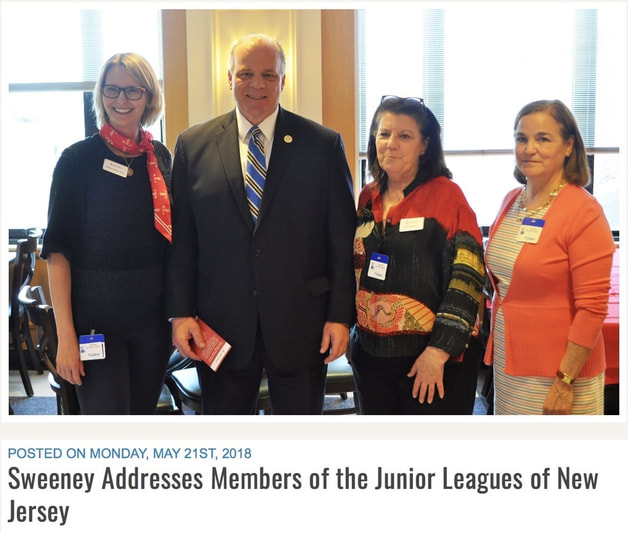Parents are the Key to Preventing Substance Use Disorders
Partnering with our parent organization AJLI (Association of Junior Leagues International), SPAC delegate Melissa Tassé (Ph.D. and neuropharmacologist) wrote an op-ed piece for The Hill that speaks to the developing adolescent brain and its vulnerability to developing a substance use disorder (aka addiction). More importantly, parents are key to preventing this disease in their children through straightforward parenting practices such as:
Partnering with our parent organization AJLI (Association of Junior Leagues International), SPAC delegate Melissa Tassé (Ph.D. and neuropharmacologist) wrote an op-ed piece for The Hill that speaks to the developing adolescent brain and its vulnerability to developing a substance use disorder (aka addiction). More importantly, parents are key to preventing this disease in their children through straightforward parenting practices such as:
- establishing clear and consistent rules and consequences
- having frequent conversations about substance use and mental health
- calling ahead to make sure other parents are home during "playdates" or parties
- finding the right balance between being a "helicopter" or "hands-off" parent
- allowing children to "fail" and grow from their disappointments and mistakes
- Modeling appropriate behavior
- avoiding phrases such as "I need a drink - I had a hard day"
- demonstrating moderation
- choosing NOT to have a beer or glass of wine with dinner
SPAC was in the Asbury Park Press regarding Recess Bill
December 1, 2008
Recess: The 4th "R'?
By MICHELLE GLADDEN - FREEHOLD BUREAU
Reading, writing, but no recess?
That was the scenario for many students in the Howell school district just over a year ago — until a group of local parents joined other groups and fought to have recess restored. Their efforts have now spread statewide, and led to a bill pending in the Legislature that would establish a task force to examine whether recess should be required in the state's elementary schools.
Ultimately, it could make New Jersey the ninth state in the country to develop an official recess policy.
"Never in my wildest dreams did I think this would be an issue," said Assemblyman Joseph R. Malone III, R-Burlington. "It may seem like a trivial issue on the surface, but these days when we medicate so many children for acting out at school, a little more free time might alleviate some of the problems we have."
That American tradition of recess — downtime to unwind and connect with friends without direct teacher supervision — is becoming more endangered as school administrators grapple with mandates in the modern age. In New Jersey, like most states, recess is not a requirement. While state officials say recess historically has been a common practice, guidelines remain in the hands of individual school boards.
"There are curriculum standards that need to be met," said Frank Belluscio, New Jersey School Boards Association spokesman. "Because we have those standards, it is increasingly more of a challenge for the districts to fit everything in the day. It comes down to what the district feels is necessary to meet its goals and the state's goals." A bill establishing a Task Force on Public School Student Recess, sponsored by Malone, was approved by an overwhelming majority earlier this month. It now awaits Senate approval. The all-volunteer task force, Malone said, will measure the seriousness of the issue in New Jersey schools, as well as whether there is really a need for a state mandate.
"We are looking to this in a nonadversarial way," said Malone, who was an educator for 36 years. "We have so many mandates now. Maybe if we stop mandating out of Trenton, kids would get a real good education." The state Department of Education opposes the bill because the $20,000 to $50,000 estimated cost for a task force is not warranted, officials say.
"We agree in the value of recess," the department said in a position statement. "We disagree with a mandatory study and with new mandates in general." But Malone said no taxpayer funds would be used. "It's not going to cost anything to do this because it will be done internally by current staff," Malone said. "It will be something done by volunteers from wide range of backgrounds."
The state does mandate that students get two hours each week of physical education, but Howell parents say physical education is not the same as unstructured play time. "It's important to their social health," said Jill Pansini, whose 10-year-old daughter Sloane recently told her she was getting at most a 10-minute break. "We didn't have any rights," said 11-year-old Ryan Walton. "They tell us what to do, and when to do it. At least during recess, we get to do what we want."
Others complained teachers were using recess as a disciplinary tool, opting to do without it if students were unruly. Last year, Howell parents used research studies showing that recess helps to raise a child's activity level and concentration, and to develop important social skills, such as patience, communication, and sharing to make their point before the local school board. By October of last year, the Howell district promised educators would put recess on the same level of importance as their educational curriculum. Principals were told to create a structured schedule to allow for the unstructured playtime. No official mandate was created, but educators were asked to implement a 20-minute block as close to the school day's halfway point as possible.
"For us, it wasn't a problem of having recess," said Newbury School Principal James Quinn. "We recognized that recess is important, but all our students were going out for recess at the same time." Quinn said current educational mandates made finding the time in the day difficult, especially if a special circumstance such as speech or occupational therapy came into play. It is specifically for that reason that specialized groups such as the New Jersey Junior Leagues — made up of women's community volunteer organizations — support the bill.
"We haven't found anywhere a sensible reason for not having recess," said League representative Delly Beekman of Rumson. "Adults get a break from the work day. I don't understand why you wouldn't give children recess." Beekman said she would work with the Howell parents' group to follow the task force's progress, should the legislation pass. Also helping the group of parents is recess advocate Tiina Medel of the International Play Association. "There are so many pressures on principals and teachers that something that might not seem as academically important as recess is easily eliminated if not mandated," Medel said. "It deserves the same level of seriousness as any other academic mandate."
December 1, 2008
Recess: The 4th "R'?
By MICHELLE GLADDEN - FREEHOLD BUREAU
Reading, writing, but no recess?
That was the scenario for many students in the Howell school district just over a year ago — until a group of local parents joined other groups and fought to have recess restored. Their efforts have now spread statewide, and led to a bill pending in the Legislature that would establish a task force to examine whether recess should be required in the state's elementary schools.
Ultimately, it could make New Jersey the ninth state in the country to develop an official recess policy.
"Never in my wildest dreams did I think this would be an issue," said Assemblyman Joseph R. Malone III, R-Burlington. "It may seem like a trivial issue on the surface, but these days when we medicate so many children for acting out at school, a little more free time might alleviate some of the problems we have."
That American tradition of recess — downtime to unwind and connect with friends without direct teacher supervision — is becoming more endangered as school administrators grapple with mandates in the modern age. In New Jersey, like most states, recess is not a requirement. While state officials say recess historically has been a common practice, guidelines remain in the hands of individual school boards.
"There are curriculum standards that need to be met," said Frank Belluscio, New Jersey School Boards Association spokesman. "Because we have those standards, it is increasingly more of a challenge for the districts to fit everything in the day. It comes down to what the district feels is necessary to meet its goals and the state's goals." A bill establishing a Task Force on Public School Student Recess, sponsored by Malone, was approved by an overwhelming majority earlier this month. It now awaits Senate approval. The all-volunteer task force, Malone said, will measure the seriousness of the issue in New Jersey schools, as well as whether there is really a need for a state mandate.
"We are looking to this in a nonadversarial way," said Malone, who was an educator for 36 years. "We have so many mandates now. Maybe if we stop mandating out of Trenton, kids would get a real good education." The state Department of Education opposes the bill because the $20,000 to $50,000 estimated cost for a task force is not warranted, officials say.
"We agree in the value of recess," the department said in a position statement. "We disagree with a mandatory study and with new mandates in general." But Malone said no taxpayer funds would be used. "It's not going to cost anything to do this because it will be done internally by current staff," Malone said. "It will be something done by volunteers from wide range of backgrounds."
The state does mandate that students get two hours each week of physical education, but Howell parents say physical education is not the same as unstructured play time. "It's important to their social health," said Jill Pansini, whose 10-year-old daughter Sloane recently told her she was getting at most a 10-minute break. "We didn't have any rights," said 11-year-old Ryan Walton. "They tell us what to do, and when to do it. At least during recess, we get to do what we want."
Others complained teachers were using recess as a disciplinary tool, opting to do without it if students were unruly. Last year, Howell parents used research studies showing that recess helps to raise a child's activity level and concentration, and to develop important social skills, such as patience, communication, and sharing to make their point before the local school board. By October of last year, the Howell district promised educators would put recess on the same level of importance as their educational curriculum. Principals were told to create a structured schedule to allow for the unstructured playtime. No official mandate was created, but educators were asked to implement a 20-minute block as close to the school day's halfway point as possible.
"For us, it wasn't a problem of having recess," said Newbury School Principal James Quinn. "We recognized that recess is important, but all our students were going out for recess at the same time." Quinn said current educational mandates made finding the time in the day difficult, especially if a special circumstance such as speech or occupational therapy came into play. It is specifically for that reason that specialized groups such as the New Jersey Junior Leagues — made up of women's community volunteer organizations — support the bill.
"We haven't found anywhere a sensible reason for not having recess," said League representative Delly Beekman of Rumson. "Adults get a break from the work day. I don't understand why you wouldn't give children recess." Beekman said she would work with the Howell parents' group to follow the task force's progress, should the legislation pass. Also helping the group of parents is recess advocate Tiina Medel of the International Play Association. "There are so many pressures on principals and teachers that something that might not seem as academically important as recess is easily eliminated if not mandated," Medel said. "It deserves the same level of seriousness as any other academic mandate."

